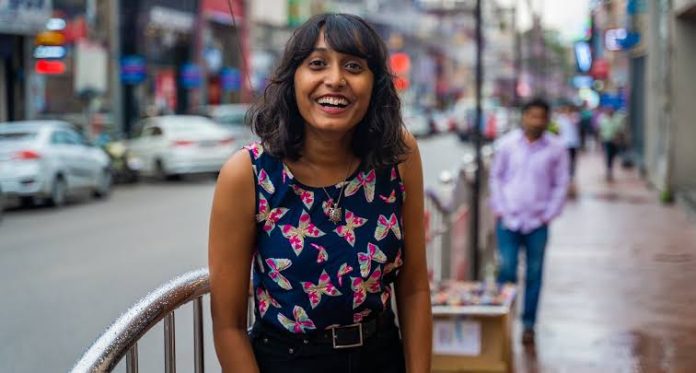
Inspired By Greta Thunberg, Disha Ravi A Climate Activist Who Founded the Indian Branch of “Fridays For The Future”
Date:

Share post:
Disha Ravi, who is 23 years old, is no stranger to experiencing the effects of climate change or engaging in advocacy for the advancement of environmental causes. Her journey toward combating climate change began at a very young age. She watched how both of her grandparents, who worked as farmers, struggled due to drought, crop failure, and flooding due to the worsening consequences of global warming leading to climate change. Even in her hometown, the Indian city of Bangalore, which is completely surrounded by land, she has seen the terrifying effects of climate change. Her mother brought her up as a sole parent in their city home, which was prone to flooding during the rainy season and got progressively worse over time. Her mother was a single parent throughout her daughter’s upbringing.
According to her, education about the climate crisis and environmental concerns were “non-existent” where she came from, which is why she was unaware that the struggles she saw her mother and grandparents going through resulted from the global environmental crisis that is currently occurring. It was predicted that her hometown of Bangalore would likewise suffer from a lack of available water in the years to come.
A member of the MAPA (Most Affected People and Areas) wing of the FFF movement, Disha tries to louden the voices of the affected communities by practicing climate activism and banishing any barrier that comes her way.

The significant effect that she saw Fridays For The Future having on other people’s lives served as the motivation for Disha’s ambition to launch the organisation in India. In 2019, Ravi helped establish the India chapter of the Fridays For Future (FFF) network and started organising strikes in several cities. Greta Thunberg, a Swedish environmental activist, was the one who motivated her to take this action. Through her global climate protest movement, Fridays For Future (FFF), millions of schoolchildren worldwide participated in a strike to protest the inaction being taken to address global warming.
Disha has always been present, whether it was to arrange environmental strikes, participate in lake cleanup operations, organize tree planting exercises, or organize climate action workshops. She has extensive knowledge of these environmental issues and is known for the same. Alongside her advocacy, in the past, she worked full-time at a company that specialized in the production of plant-based foods to encourage environmentally friendly ways of living. She was the sole provider for her family.
“Disha had a reputation for being a very hard worker who was entirely devoted to environmental problems. She would exhaust herself working on these issues because she cared so much about them. I worried about her sometimes that she was putting her health at risk for her activism,” said a fellow activist in Bengaluru who requested to remain nameless out of fear of the authorities.
Ravi was the one who was frequently interviewed by the international media outlets that were writing about the phenomenon of the FFF movement taking place all over the world. She was often quite critical of the government’s policies while NarendraModi was serving as the prime minister of the country.
“We, the people from the areas that have been hit the worst are going to alter the narrative in the climate negotiations and lead the way in developing a just recovery plan that benefits the people and not the coffers of our government,”

“In India, people continue to suffer because of anti-people laws. We live in a country where dissent is suppressed. In Fridays For Future India, We were labeled terrorists for objecting to the draft EIA notification. Only a government that puts profit over people would consider asking for clean air, clean water, and a liveable planet an act of terrorism. We will continue this fight because stopping would mean no water to drink, no air to breathe, and no land to live in for the marginalized communities. The government needs to work with the people to protect them, people. The time for prevention is over; we need recovery and a just transition.” says Ravi.
Young people like Disha, who are not afraid to show how they feel, are the ones who have the power to help bring about a change in response to the climate problem that is hurting all of us. For the simple reason that, as she says, “We are not simply fighting for our future; we are fighting for our now.”
